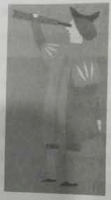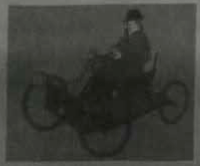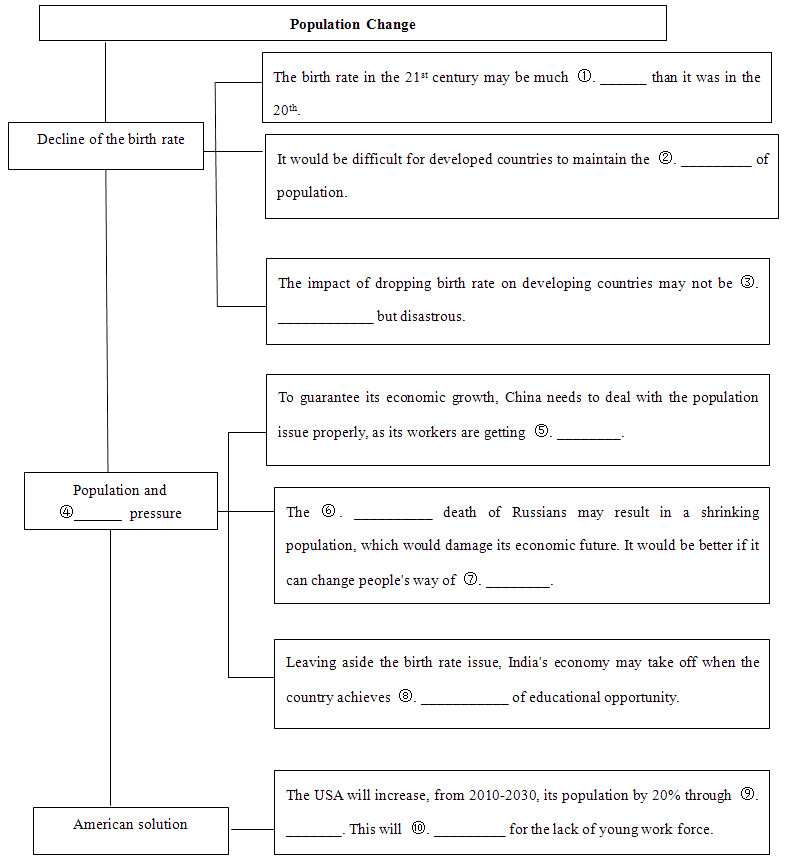For a long time Gabriel didn't want to be involved in music at all. In his first years of high school,Gabriel would look pityingly at music students,1across the campus with their heavy instrument cases.2at school for practice hours3anyone else had to be there.He swore to himself to4music,as he hated getting to school extra early.
5 , one day,in the music class that was 6of his school's standard curriculurn,he was playing idly (随意地)on the piano and found it 7to pick out tunes.With a sinking feeling,he realized that he actually 8doing it.He tried to hide his 9pleasure from the music teather, who had 10over to listen. He might not have done this particularly well,11the teacher told Gabriel that he had a good12and suggested that Gabriel go into the musin store-room to see if any of the instruments there13him. There he decided to give the cello(大提琴)a 14. When he began practicing, he took it very 15. But he quickly found that he loved playing this instrurnent, and was 16to practicing it so that within a couple of months he was playing reasonably well.
This 17, of course, that he arrived at school early in the morning,18his heavy instrument case across the campus to the 19looks of the non-musicians he had left20.
请阅读下列短文,从短文后各题所给的A、B、C、D四个选项中,选出最佳选项,并在答题卡上将该项涂黑。
CHRONOLOGICA
——The Unbelievable Years that Defined History

DID YOU KNOW…
![]() In 105AD paper was invented in China?
In 105AD paper was invented in China?
![]() When Columbus discovered the New World?
When Columbus discovered the New World?
![]() The British Museum opened in 1759?
The British Museum opened in 1759?

CHRONOLOGICA is a fascinating journey through time,from the foundation of Rome to the creation of the internet. Along the way are tales of kings and queens,hot air balloons…and monkeys in space.
Travel through 100 of the most unbelievable years in world history and learn why being a Roman Emperor wasn't always as good as it sounds,how the Hundred Years' War didn't actually last for 100 years and why Spencer Perceval holds a rather unfortunate record.

CHRONOLOGICA is an informative and entertaining tour into history, beautifully illustrated and full of unbelievable facts. While CHRONOLOGICA tells the stories of famous people in history such as Thomas Edison and Alexander the Great, this book also gives an account of the lives of lesser-known individuals including the exploeer Mungo Park and sculptor Gutzon Borglum.

This complete but brief historical collection is certain to entertain readers young and old,and guaranteed to present even the biggest history lover with somgthing new!
Before birth, babies can tell the difference between loud sounds and voices. They can even distinguish their mother's voice from that of a female stranger. But when it comes to embryonic learning(胎教), birds could rule the roost. As recently reported in The Auk: Ornithological Advances, some mother birds may teach their young to sing even before they hatch(孵化)。New-born chicks can then imitate their mom's call within a few days of entering the world.
This educational method was first observed in 2012 by Sonia Kleindorfer, a biologist at Flinders University in South Australia, and her colleagues. Female Australian superb fairy wrens were found to repeat one sound over and over again while hatching their eggs, When the eggs were hatched, the baby birds made the similar chirp to their mothers—a sound that served as their regular “feed me!”call.
To find out if the special quality was more widespread in birds, the researchers sought the red-backed fairy wren, another species of Australian songbird. First they collected sound data from 67 nests in four sites in Queensland before and after hatching, Then they identified begging calls by analyzing the order and number of notes. A computer analysis blindly compared calls produced by mothers and chicks, ranking them by similarity.
It turns out that baby red-backed fairy wrens also emerge chirping like their moms. And the more frequently mothers had called to their eggs, the more similar were the babies' begging calls. In addition, the team set up a separate experiment that suggested that the baby birds that most closely imitated their mom's voice were rewarded with the most food.
This observation hints that effective embryonic learning could signal neurological(神经系统的) strengths of children to parents. An evolutionary inference can then be drawn.“As a parent, do you invest in quality children, or do you invest in children that are in need? ”Kleindorfer asks. “Our results suggest that they might be going for quality. ”
A new commodity brings about a highly profitable, fast-growing industry, urging antitrust(反垄断)regulators to step in to check those who control its flow. A century ago ,the resource in question was oil. Now similar concerns are being raised by the giants(巨头)that deal in data, the oil of the digital age. The most valuable firms are Google, Amazon, Facebook and Microsoft. All look unstoppable.
Such situations have led to calls for the tech giants to be broken up. But size alone is not a crime, The giants' success has benefited consumers. Few want to live without search engines or a quick delivery, Far from charging consumers high prices, many of these services are free (users pay, in effect, by handing over yet more data). And the appearance of new-born giants suggests that newcomers can make waves, too.
But there is cause for concern. The internet has made data abundant, all-present and far more valuable, changing the nature of data and competition. Google initially used the data collected from users to target advertising better. But recently it has discovered that data can be turned into new services: translation and visual recognition, to be sold to other companies. Internet companies' control of data gives them enormous power. So they have a “God's eye view” of activities in their own markets and beyond.
This nature of data makes the antitrust measures of the past less useful. Breaking up firms like Google into five small ones would not stop remaking themselves: in time, one of them would become great again. A rethink is required—and as a new approach starts to become apparent, two ideas stand out.
The first is that antitrust authorities need to move form the industrial age into the 21st century. When considering a merger(兼并),for example, they have traditionally used size to determine when to step in. They now need to take into account the extent of firms' data assets(资产) when assessing the impact of deals. The purchase price could also be a signal that an established company is buying a new-born threat. When this takes place, especially when a new-born company has no revenue to speak of, the regulators should raise red flags.
The second principle is to loosen the control that providers of on-line services have over data and give more to those who supply them. Companies could be forced to consumers what information they hold and how many money they make from it. Governments could order the sharing of certain kinds of data, with users' consent.
Restarting antitrust for the information age will not be easy But if governments don't wants a data economy by a few giants, they must act soon.
D
Old Problem , New Approaches
While clean energy is increasingly used in our daily life,global warning will continue for some decades after CO2 emissions(排放)peak. So even if emission were to begin decrease today,we would still face the challenge of adapting to climate. Here I will stress some smarter and more creative examples of climate adaptation.
When it comes to adaptation,it is important to understand that climate change is a process. We are therefore not talking about adapting to a new standard,but to a constantly shifting set of conditions. This is why in part at least,the US National Climate Assessment says that:”there is no ‘one-size fit all' adaptation.” Nevertheless,there are some actions that offer much and carry little risk or cost.
Around the world people are adapting in surprising ways,especially in some poor countries,Floods have some more damaging in Bangladesh in recent decades. Mohammed Rezwan saw opportunity where others saw only disaster. His not-for-profit organization runs 100 river boats that server as floating libraries,schools,and health clinics,and are equipment with solar panels and other communication facilities. Rezwan is creating floating connectivity(连接) to replace flooded roads and highways. But he is also working at a far more fundamental level:his staff people how to make floating gardens fish ponds prevent starvation during the wet season.
Elsewhere in Asia even more astonishing actions are being taken. Chewang Nophel lives in a mountainous region in India, where he is known as the Ice Man. The loss of glaciers(冰川) there due to global warming represents an enormous threat to agriculture. Without the glaciers, water will arrive in the rivers at times when it can damage crops. Norphel's inspiration come from seeing the waste of water over winter, when it was not needed. He directed the wasted water into shallow basins where it froze, and was stored until the spring. His fields of ice supply perfectly timed irrigation(灌溉) water. Having created nine such ice reserves. Nophel calculates that he has stored about 200, 000m3 of water. Climate change is a continuing process, so Norhel's ice reserves will not last forever. Warming will overtake them. But he is providing a few years during which the farmers will, perhaps, be able to find other means of adapting.
Increasing Earth's reflectiveness can cool the planet. In southern Spain the sudden increase of greenhouses (which reflect light back to space) has changed the warming trend locally, and actually cooled the region. While Spain as a whole is heating up quickly, temperatures near the greenhouses have decreased. This example should act as an inspiration for all cities. By painting buildings white, cities may slow down the warming process.
In Peru, local farmers around a mountain with a glacier that has already fallen victim to climate change have begun painting the entire mountain peak white in the hope that the added reflectiveness will restore the life-giving ice. The outcome is still far from clear, But the World Bank has included the project on its of ‘100 ideas to save the planet”.
More ordinary forms of adaptation are happening everywhere. A friend of mine owns an area of land in western Victoria. Over five generations the land has been too wet for cropping. But during the past decade declining rainfall has allows him to plant highly profitable crops. Farmers in many countries are also adapting like this—either by growing new produce, or by growing the same things differently. This is common sense, But some suggestions for adapting are not. When the polluting industries argue that we've lost the battle to control carbon pollution and have no choice but to adapt, it's a nonsense designed to make the case for business as usual.
Human beings will continue to adapt to the changing climate in both ordinary and astonishing ways. But the most sensible form of adaptation is surely to adapt our energy systems to emit less carbon pollution. After all, if we adapt in the way, we may avoid the need to change in so many others.
请阅读下面短文,并根据所读内容在文章后表格中的空格里填入一个最恰当的单词。
注意:请将答案写在答题卡上相应题号的横线上。每个空格只填一个单词。
Population Change
Why is the world's population growing?The answer is not what you might think. The reason for the explosion is not that people have been reproducing like rabbits, but that people have stopped dropping dead like flies. In 1900,people died at the average age of 30.By 2000 the average age was 65.But while increasing health was a typical feature of the 20th century, declining birth rate could be a defining one of the 21st.
Statistics show that the average number of births per woman has fallen from 4.9 in the early 1960s to 2.5 nowadays. Furthermore, around 50% of the world's population live in regions where the figure is now below the replacement level(i.e.2.1 births per woman)and almost all developed nations are experiencing sub-replacement birth rate. You might think that developing nations would make up the loss(especially since80% of the world's people now live in such nations),but you'd be wrong, Declining birth rate is a major problem in many developing regions too, which might cause catastrophic global shortages of work force within a few decades.
A great decline in young work force is likely to occur in China, for instance. What does it imply? First, China needs to undergo rapid economic development before a population decline hits the country. Second, if other factors such as technology remain constant, economic growth and material expectations will fall well below recent standards and this could invite trouble.
Russia is another country with population problems that could break its economic promise. Since 1992 the number of people dying has been bigger than that of those being born by a massive 50%,Indeed official figures suggest the country has shrunk by 5% since 1993 and people in Russia live a shorter life now than those in 1961.Why is this occurring? Nobody is quite sure, but poor diet an above all long-time alcoholism have much to do with it. If current trends don't bend. Russia's population will be about the size of Yemen's by the year 2050.
In the north of India, the population is booming due to high birth rates, but in the south, where most economic development is taking place, birth rate is falling rapidly. In a further twist, birth rate is highest in poorly educated rural areas and lowest in highly educated urban areas. In total,25% of India's working-age population has no education. In 2030,a sixth of the country's potential work force could be totally uneducated.
One solution is obviously to import foreign workers via immigration. As for the USA, it is almost unique among developed nations in having a population that is expected to grow by 20% from 2010-2030,Moreover,the USA has a track record of successfully accepting immigrants. As a result it's likely to see a rise in the size of its working-age population and to witness strong economic growth over the longer term.

① ② ③ ④ ⑤
⑥ ⑦ ⑧ ⑨ ⑪